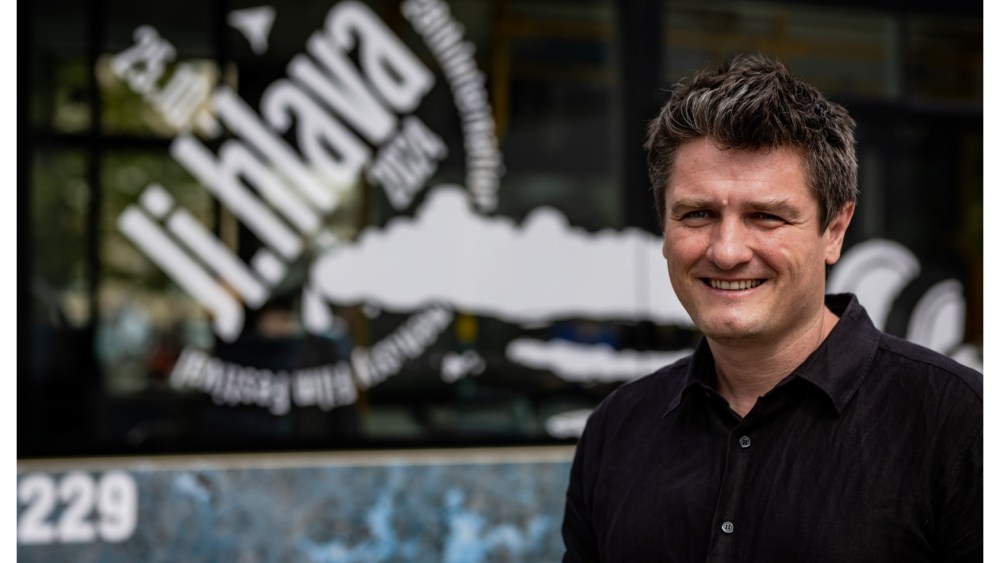Russian Bricklayer, Slovak Woman President Among Subjects at Ji.hlava
From its showcase of the most probing Czech and Eastern European nonfiction work to its tributes to underappreciated auteurs and platforms for indie collaborations, the Ji.hlava Intl. Documentary Film Festival is in its stride these days.
With a newly expanded 28th edition, a 10-day gala held in the historic Czech town of Jihlava, the fest is out to shake things up, as usual, says founder and festival director Marek Hovorka.
The fest’s opening film, “Ms. President,” by Marek Sulik, is an embedded account of the frustrations of Slovakia’s first woman to win the office, Zuzana Caputova, and it makes for a fitting banner project, says Hovorka.
“We always support Czech and Slovak culture and films. It’s a huge work and I think it can bring a deeper impression of how society works in the Czech and Slovak republics.”
Hovorka says people can detect “a shift in mood and tendency” in Slovakia, which borders Ukraine and whose government has become vocally pro-Putin.
Now in its third year, Russia’s war on Ukraine is still overshadowing much doc work in the region, says Hovorka – to the extent that some great films in the genre are likely being overlooked while the world’s attention is on the battle zones.
One insight that penetrates beyond the headlines, Hovorka notes, is the new doc by Filip Remunda, “Happiness to All,” which grew out of eight years spent with an out-of-luck but in many ways typical Russian living in Siberia. Remunda, half of the team along with Vit Klusak who carried Czech docs through to international audiences 20 years ago with the consumer capitalism sendup “Czech Dream,” is being feted this year at Ji.hlava.
The ironic approach of Klusak and Remunda has carried on throughout their prodigious career, as their focus has moved from war games to COVID 19 culture. Hovorka says this notable Czech embrace of irreverence is part of what won the attention of Michael Moore, an early advocate of the team.
In “Happiness,” Remunda learns that even a Russian bricklayer on the margins of society who is barely getting by can become a believer in Putin – and just maybe his mentality helps explain why so many of his countrymen and women remain just as dedicated to the brutal leader.
Ji.hlava, like many fests, still will not screen Russian-produced films because most involve state funding, Hovorka says. But there are ways to keep to an ethical code while still probing Russian lives and minds.
“I think it’s a really impressive film that allows us to hear the side of a Russian,” says Hovorka. “We usually don’t hear that.”
The fest’s growth has been remarkable since its founding, and Ji.hlava, which this year was flooded with 3,500 film submissions, last year announced it would extend its time frame, both to allow participants better access to events and to offer more screenings.
With some 340 films reaching audiences this year, says Hovorka, “The competition was really high and it’s great to see there are so many filmmakers interested in us and in the documentary form.”
Ji.hlava’s long-held mission to help emerging filmmakers find both support and audiences is as vital as ever, Hovorka says, and this year is best seen at its New Visions Forum, a key part of its Industry Days, running Oct. 29-Nov. 1. This generally packed event, held along with a market at the sleek Industry Hub space, sees a remarkable range of projects pitched in stages of development, production and post-production.
This year, East and Southeast Asia projects have been added to the mix, which Hovorka says was a natural, organic step because docmakers in that region face the same dilemmas and challenges as their counterparts in the U.S. and Europe.
“The suffering and the tasks we deal with are the same everywhere,” Hovorka says of doc directors and producers. “We share the same work, in a way.”
And, aside from Ji.hlava’s annual showcasing of 18 emerging producers from around Central and Eastern Europe, Hovorka says he’s most chuffed about the fest’s conference on the ethics of doc creation and production, running Oct. 30-31. Veteran participants will take on issues from social engagement to who determines what subjects docmakers are allowed to film.
“Who are the gatekeepers and which topics are more easily covered and which topics are not possible to cover, maybe because of financing or censorship or self-censorship?,” he asks.
In terms of screenings, Ji.hlava’s Testimonies section focuses on issues of global concern each year, this time taking on the themes of the natural world and climate crises – Yasha Levine and Rowan Wernham’s New Zealand/U.S. doc “Pistachio Wars,” with its look at profitable but water-demanding nut agriculture in drought-plagued California has characteristic insight, Hovorka says.
Its New Visions section, meanwhile, is built around discovering filmmakers, while Czech Joy screens the best in domestic work and Fascinations curates bold experimental projects.
Hovorka says he’s curious how one distinct section will affect audiences: We Have Our Film! is a collection of archival docs from the days of the founding of the fascist Slovak state under Nazi occupation, curated by Petra Hanakova.
“We were really surprised,” Hovorka says, that “most of these films don’t have a political approach.”
Ji.hlava is also proud to bring to its audiences the work of Tsai Ming-Lang, who temporal approaches in Taiwanese films have blown away conventions, Hovorka says.
He’s also excited to screen the films of Anne-Marie Mieville, whose career was overshadowed by her creative partner Jean-Luc Godard.
“We are very happy we can give space to her,” he says. “We’re happy that times are changing and there’s a more equal dialogue of two strong personalities.”


